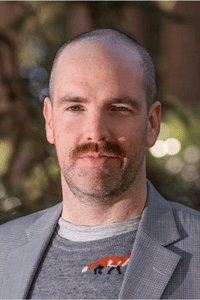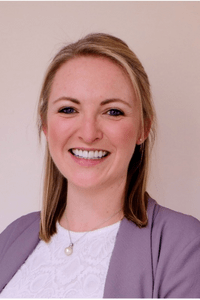
Other story completion researchers
We’ve been excited to observe how others have taken up and started to explore and expand the potential of story completion. The researchers here are people we know who are using or have used, and written about, the method. It is not an exhaustive list of everyone who has ever done an SC study. Enjoy reading about them and their work.
Professor Deborah Lupton

Deborah Lupton is a sociologist who uses story completion combined with more-than-human and post-qualitative theory. She is SHARP Professor and leader of the Vitalities Lab, UNSW Sydney, where she and her team like to experiment with innovative social research methods – particularly those using arts- and design-based approaches. She also runs the Innovative Social Research Methods Facebook group. Deborah has used story completion in studies addressing people’s experiences of addressing a health problem and responses to data privacy issues. She analyses stories using concepts drawn from more-than-human theory, including affective forces, relational capacities and agential capacities. She has also combined poetic inquiry with story completion, creating found poetry from the stories written by participants in her studies.
Gemma Pike

I work as a Senior Lecturer at the University of the West of England, Bristol and first came across the story completion task method via a conversation with Victoria Clarke. There is a limited amount of qualitative research in my area of work psychology, and story completion task is a neglected method. I have been working on story completion studies with both undergraduate and postgraduate students exploring a range of workplace issues from bullying through to stress and well-being at work. For example, I’ve supervised a Prof Doc student who is exploring the work of therapists via the story completion method as well as with an MSc student exploring menopause in the workplace. I have also worked on a study looking at how workplace proactivity is conceptualised using story completion. The stories are fascinating, and I love reading the many different styles and approaches that the participants offer. For one recent study, I added in an ‘any other comments’ box at the end and I received numerous responses stating that it was ‘fun’, ‘creative’ and ‘a great way to do research’! If you want to discuss using story completions with workplace issues, please do get in touch, as I love any opportunity to talk about these sort of things! You can find out more on my UWE profile.
Professor Annadís Greta Rúdólfsdóttir

I am a Professor in Research Methodology at the School of Education, University of Iceland. Since I first was introduced to qualitative research I have been interested in stories and what they tell us about the culture we live in, our relations with others and subjectivity. I concur with the observation that humans are story-telling animals who frame experiences in stories to create meaning for ourselves and others. I have sought out narratives for my research projects including obituaries, MeToo testimonies and women‘s accounts of their birthing experiences. When Virginia Braun introduced me to the story-completion method my interest was immediately piqued. I have used the method to explore the discursive context young women draw on when making sense of fat/thin female bodies in a dating context (Sigurðardóttir & Rúdólfsdóttir, 2019), pandemic parenting (Auðardóttir & Rúdólfsdóttir, 2021) and how gender, risk, responsibility and shame feature in young people’s (aged 18–20 years) stories about alcohol consumption with peers in Iceland (Rúdólfsdóttir & Gudjohnsen, 2025). I now teach how to use this method in the methodology course I run at the University of Iceland. This provides an opportunity to explore different research contexts where it can be used and deepening my experience as a researcher.
Dr Brett Scholtz

I first heard about story completion as a data collection method at the 2017 conference of the International Society of Critical Health Psychology when Virginia and Irmgard ran a session introducing it to us. I was rather taken with the idea of a method that allowed participants to draw on existing repertoires, but also to consider hypothetical solutions, critiques, or challenges to social norms. My research focuses on the power imbalances between health service users and health service providers working in organisational or systemic contexts. I knew story completion would be useful to explore the relative ease with which health service users and providers could engage in decision-making structures, such as hospital committees. Not only were participants’ stories insightful, but they were fun (and sometimes sad) to read, and I hope they also enjoyed the experience of participating and creating these stories. You can find more information on my profiles at The Australian National University, Google Scholar, ResearchGate, and I tweet from @brett_scholz.
Associate Professor Toni Williams

I will be starting as an Associate Professor in the Department of Sport and Exercise Sciences at Durham University shortly, having been at Leeds Beckett until recently. My research focuses on physical activity and disability using qualitative research methods and methodologies. I first heard about story completion from Professor Victoria Clarke and colleagues at the Qualitative Research Symposium held at the University of Bath. I was intrigued by the novel opportunities story completion had to offer in comparison to more traditional qualitative data collection techniques. I was also excited to extend the scholarly activity in story completion research and explore the possibilities of taking a narrative approach to analyse data. Bringing these interests together, we designed a study to explore the socio-cultural narratives drawn upon by undergraduate sport and exercise science students to construct stories of physical activity and disability. We enjoyed experimenting with the method by designing four different story stems and drawing upon a structural narrative analysis to identify a typology of narratives reflected in the stories. The students also had fun taking part and have since drawn upon story completion in their own projects to examine other topics including doping in sport and disability and dating. You can find more information on twitter @T_L_WilliamsPhD.